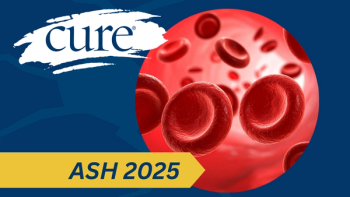
Rusfertide keeps hematocrit under 45% and prevents phlebotomy for most patients with polycythemia vera through 52 weeks of treatment.

Rusfertide keeps hematocrit under 45% and prevents phlebotomy for most patients with polycythemia vera through 52 weeks of treatment.

Tecentriq numerically increased the rates of chemotherapy-induced ovarian failure compared with chemotherapy alone for patients with triple-negative breast cancer.
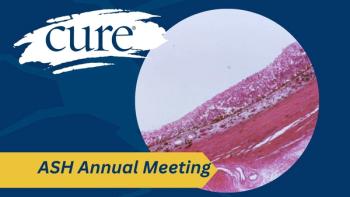
Among patients with previously untreated diffuse large B-cell lymphoma, odronextamab has been associated with early efficacy.
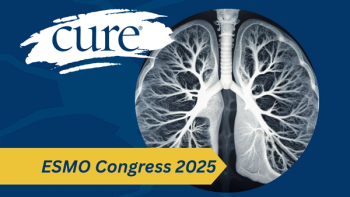
Alecensa achieved a 98.4% 4-year overall survival rate versus 92.4% with chemotherapy in resected ALK-positive early-stage lung cancer.

Adding Truqap to Zytiga, prednisone, and ADT extended radiographic progression-free survival by 7.5 months in PTEN-deficient prostate cancer.

In patients with ER-positive, HER2-negative advanced breast cancer, giredestrant and Afinitor reduced risk of disease progression or death.

The antibody-drug conjugate zilovertamab vedotin plus Rituxan and chemotherapy showed an objective response rate of 56.3% in relapsed/refractory DLBCL.

Akeega delayed cancer growth and symptoms in patients with castration-sensitive prostate cancer and HRR gene mutations.

Belamaf plus bortezomib and dexamethasone lengthened the time patients with relapsed or refractory myeloma lived before their disease got worse.

Opdivo plus Yervoy in the neoadjuvant setting reduced the risk for recurrence, progression or death, potentially offering patients with stage 3 melanoma a new standard of care.

The recent phase 3 TRANSFORM-1 study concluded that navitoclax combined with Jakafi showed significant spleen volume reductions in patients with myelofibrosis.

Vorasidenib reduced the risk of disease progression or death for certain patients with low-grade brain cancer, recent study results showed.

Adding Keytruda to pre-surgical chemotherapy then giving it again after surgery improved event-free survival and pathologic complete response in patients with early-stage lung cancer.
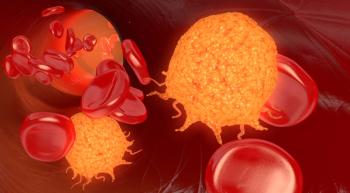
Progression-free survival and overall response rates greatly improved in patients with CLL/SLL treated with Brukinsa compared with Imbruvica.

Lumakras outperformed chemotherapy in reducing the risk of progression or death and improving quality of life for patients with KRAS G12C-mutated non-small cell lung cancer, study results showed.
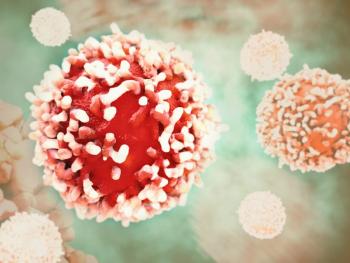
The use of a tumor-infiltrating lymphocyte therapy led to better outcomes than treatment with Yervoy in patients with unresectable, treatment-refractory stage 3/4 melanoma, a type of skin cancer, study results showed.

The findings of the study show that Enhertu should be a new standard of care for patients with HER2-low metastatic breast cancer, according to an expert at Memorial Sloan Kettering Cancer Center.

Over the past several years, multiple treatment advancements have given oncologists the ability to better target brain metastases in patients with HER2-positive metastatic breast cancer.

The FDA will speed up their review of CYNK-101 plus chemotherapy and immune checkpoint inhibitors for the treatment of advanced HER2-postivie gastric or gastroesophageal adenocarcinomas.

Treatment with Ninlaro plus Darzalex and a low dose of the steroid dexamethasone was associated with favorable responses to treatment in non-transplant eligible, intermediate-fit patients with newly diagnosed multiple myeloma.
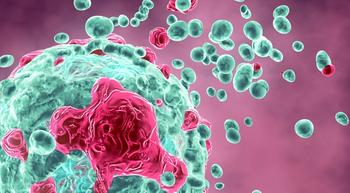
Frontline maintenance therapy with Zejula lengthened time without disease progression among women with newly diagnosed, advanced ovarian cancer, according to findings from the phase 3 PRIMA study.

There are currently more than 700 new therapies in development for people with cancer, representing a trend that is being driven by increased innovation.

The FDA has granted LOXO-292 a breakthrough therapy designation for the treatment of patients with RET fusion–positive non–small cell lung cancer (NSCLC) or RET-mutant medullary thyroid cancer (MTC). This designation will expedite the development and review of the drug.

The FDA has incorporated PD-L1 status into the labels for Keytruda (pembrolizumab) and Tecentriq (atezolizumab) for existing frontline approvals for platinum-ineligible patients with urothelial carcinoma, based on lower overall survival (OS) rates with the PD-1/PD-L1 inhibitors compared with platinum-based chemotherapy for patients with PD-L1–low expressing platinum-eligible urothelial carcinoma.

The Food and Drug Administration (FDA) approved a new formulation of Yonsa (abiraterone acetate) in combination with methylprednisolone as a treatment for men with metastatic castration-resistant prostate cancer (mCRPC), according to Sun Pharma, the company commercializing the treatment.

Tavalisse (fostamatinib) was granted approval by the Food and Drug Administration (FDA) for patients with chronic immune thrombocytopenia (ITP) after they had an insufficiencent response to another therapy.

“Disease control is key in our patients with locally advanced disease, as it may lead to opportunities for additional treatment interventions, including radiotherapy, or even, in some favorable cases, surgical resection,” said lead study author Pascal Hammel, M.D., Ph.D.

“Patients with advanced hepatocellular carcinoma often have a poor prognosis and limited treatment options following prior systemic therapy,” lead investigator Ghassan K. Abou-Alfa, M.D.
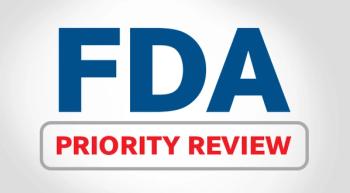
Ivosidenib (AG-120) was granted a priority review designation by the Food and Drug Administration (FDA) for the treatment of patients with relapsed/refractory IDH1-mutant acute myeloid leukemia (AML), according to a statement from Agios Pharmaceuticals, the company developing the targeted therapy.

Janssen Biotech announced that the Food and Drug Administration has approved Zytiga (abiraterone acetate) in combination with prednisone for high-risk castration-sensitive prostate cancer.

Published: June 3rd 2025 | Updated:

Published: December 14th 2022 | Updated:

Published: November 11th 2016 | Updated:

Published: November 16th 2016 | Updated:

Published: November 26th 2016 | Updated:

Published: December 1st 2016 | Updated: